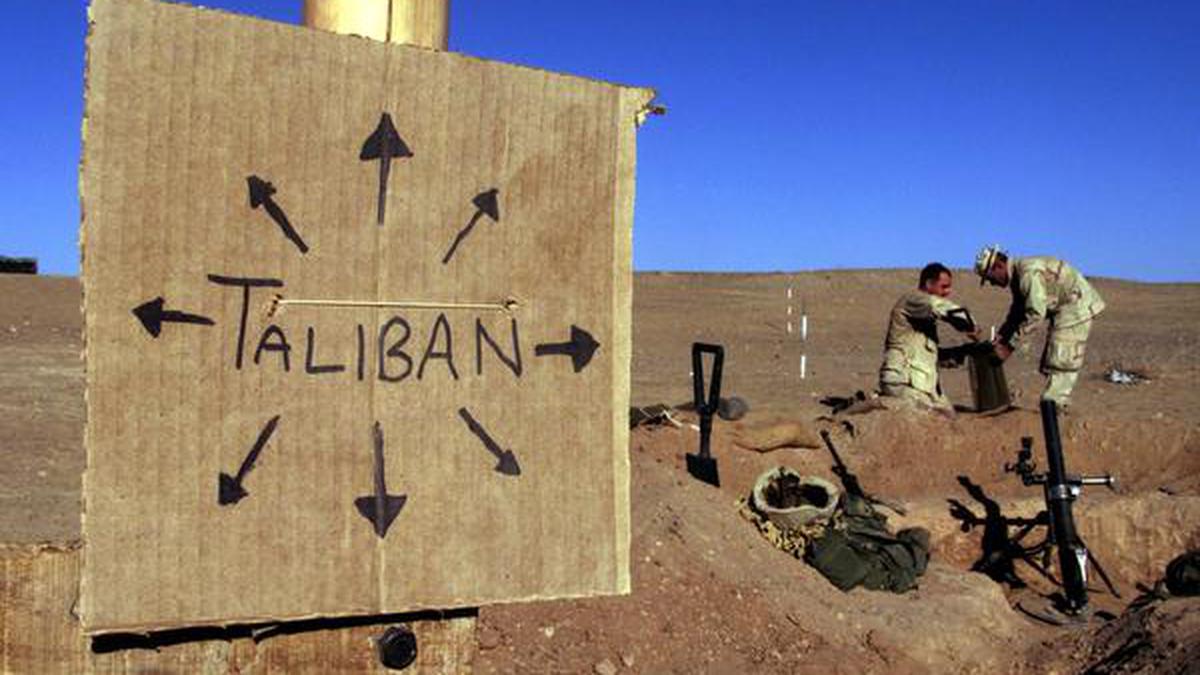
There was no immediate comment by Pakistan’s military and the Taliban government in Afghanistan denounced the strikes, which are likely to further increase tension between the neighbouring countries.
| Photo Credit: Reuters
“Pakistani airstrikes targeted multiple suspected hideouts of Pakistani Taliban inside Afghanistan early Monday (March 18), two days after insurgents killed seven soldiers in a suicide bombing and coordinated attacks in the northwest,” two security officials said.
There was no immediate comment by Pakistan’s military and the Taliban government in Afghanistan denounced the strikes, which are likely to further increase tension between the neighbouring countries.
Two Pakistani security and intelligence officials said the airstrikes were carried out in Khost and Paktika provinces bordering Pakistan. The officials spoke on the condition of anonymity because they were not authorised to speak to media on the record.
The officials provided no further details, and it was unclear whether jets went deep inside Afghanistan. The Pakistani Taliban also confirmed Monday’s strikes in a statement.

Chief Afghan Taliban spokesperson Zabihullah Mujahid said in a statement that Pakistan’s airstrikes in Barmal distirct in Paktika killed three women and three children while two other women were killed in the strike in Khost province.
The airstrikes came two days after a suicide bomber rammed his explosive-laden truck into a military post in northwest Pakistan, killing seven soldiers.
Pakistani troops also came under attack on March 16 and they killed all six militants responsible in a shootout in North Waziristan, a district in Khyber Pakhtunkhwa province that borders Afghanistan.
Pakistani President Asif Ali Zardari attended the funerals of the soldiers and vowed to retaliate for their killings, saying “the blood of our martyred soldiers will not go in vain.” Saturday’s attack on the military post was claimed by a newly formed militant group, Jaish-e-Fursan-e-Muhammad. However, Pakistani security officials believed the group mainly is comprised of members of the outlawed Tehrik-e-Taliban Pakistan or TTP, which often targets Pakistani soldiers and police.
Syed Muhammad Ali, an Islamabad based security expert, said Monday’s strikes were in retaliation for a series of TTP attacks, especially the one on Saturday in Mir Ali in which an Army lieutenant colonel and captain were among those killed.
He said the Pakistani strikes came within 24 hours of Mr. Zardari’s promise of strong retaliation. “It also indicates that Pakistan’s patience for the Afghan interim government’s continued hospitality for terrorists conducting frequent attacks on Pakistan from inside Afghanistan has finally run out,” he said.
The Pakistani Taliban are a separate group but are allies of the Afghanistan Taliban, who seized power in Afghanistan in 2021 as the U.S. and NATO troops were in the final stages of their pullout. The Taliban takeover in Afghanistan emboldened TTP, whose top leaders and fighters are hiding in Afghanistan.
Though the Taliban government in Afghanistan often says it will not allow TTP or any other militant group to attack Pakistan or any other country from its soil, the Pakistani Taliban have stepped up attacks inside Pakistan in recent years, straining relations with the Afghan Taliban government.

